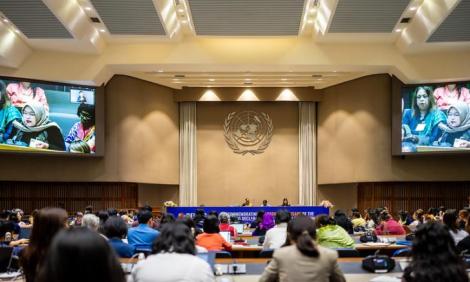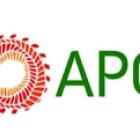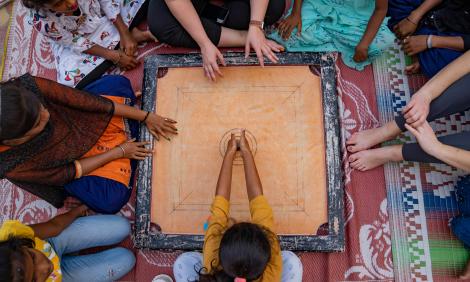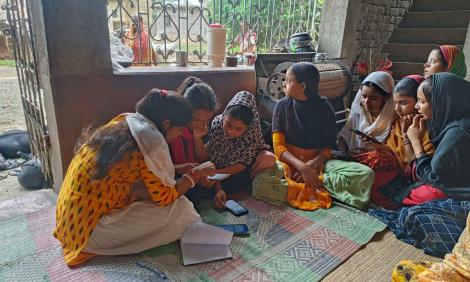In depth
Updated Realities on Gender Justice and Digital Justice: Why International Multilateral Processes and Spaces Must Align
By Karla Velasco Ramos
As Beijing+30, WSIS+20, and the Pact for the Future converge, this article reflects on three decades of feminist engagement at the intersection of gender and digital rights. While recognition of issues like technology-facilitated gender-based violence and AI harms marks progress, multilateral processes remain fragmented, Western-centric, and weak on accountability. This article argues for integrated frameworks that centre human rights, intersectionality, and Global South participation, urging active implementation over commitments to advance gender and digital justice together.
Feminist talk
Looking at Beijing+30: Adapting our approach to gender equality for today's technological landscape
By Francia K. Baltazar P.
This article reflects on how technological change has reshaped the landscape of gender equality. By referencing Hija Kamran's expert paper, it situates APC’s contributions, noting both the progress made and persistent gaps. The article outlines how issues such as digital gender divides, technology-facilitated violence, AI misuse, and surveillance now demand urgent attention. It stresses the need for feminist approaches, accountability, and inclusive digital policies to ensure gender justice in today’s interconnected online and offline worlds.
Feminist talk
TIMELINE: APC since Beijing 1995: Shaping a feminist internet
By APC
We are pleased to present our timeline, APC since Beijing 1995: Shaping a feminist internet, showcasing the APC community’s pioneering journey at the intersection of gender rights and digital rights. This timeline honours our shared legacy built by many hands to create resources, build capacity and share voices across the global South.
Feminist talk
APC since Beijing 1995: Shaping a feminist internet
By Maja Romano
As Beijing+30 prompts reflection on progress toward gender equality, APC marks 30 years of shaping a feminist internet. Since its founding in 1990 and pivotal role in drafting Section J of the Beijing Platform for Action, APC has worked to ensure women and gender-diverse people can co-create digital technologies that reflect their realities. Through advocacy, movement building, and inclusion of marginalised voices, APC highlights the role of sustained feminist engagement in digital policy as vital to advancing rights and dismantling patriarchy.
Feminist talk
30 YEARS AFTER THE BEIJING DECLARATION: DEFENDING THE ONLINE BODIES AND LANDS OF MESOAMERICAN WHRDs IS AN URGENT NEED
By IM-Defensoras
Thirty years after the Beijing Declaration, women human rights defenders in Mesoamerica face escalating digital violence that mirrors and amplifies offline repression. Research by IM-Defensoras reveals thousands of online attacks led by states, corporations, and fundamentalist groups. These digital assaults are not incidental but structural tools of silencing and control that highlight the need for urgent action to recognise and address digital violence as central to defending rights, bodies, and territories.
Feminist talk
REFLECTION ON BEIJING+30: ADDRESSING GAPS FOR LGBTQIA+ AND MARGINALISED COMMUNITIES IN EAST AFRICA
By Sophie Carol
As Beijing+30 approaches, LGBTQIA+ and marginalised women in East Africa remain excluded from the agenda’s promise of equality. Punitive laws, stigma, and violence deepen invisibility, while limited digital access compounds isolation. This article reflects on persistent gaps in the Beijing Platform for Action, exposing its cis-heteronormative blind spots and failure to address tech-facilitated violence. It highlights the need for genuine inclusion, funding, and intersectional strategies to advance gender justice.
Feminist talk
Online Misinformation taps into the financial vulnerabilities of the LBQT+ community in India
By Brindaalakshmi. K
This article explores how online misinformation exploits the financial precarity of LBQT+ communities in India. Excluded from formal banking and welfare systems due to identity-based barriers, many are pushed towards unsafe digital loans, scams, and fraudulent job offers. Predatory apps weaponise disinformation to harass and extort, while limited digital literacy and fear of exposure leads to exploitation and systemic economic marginalisation.
Feminist talk
Misinformation About Sexual Health in India Requires More Than Just Medical Facts
By Yesha Tshering Paul
In India, sexual and reproductive health misinformation thrives not because of a lack of information, but because of deep-rooted taboos, moral policing, and cultural anxieties that stigmatise open discussion. Social media algorithms amplify emotionally charged, shame-based narratives over evidence-based information, making credible content harder to access. Yesha Tshering Paul argues that addressing this crisis requires more than medical facts.
Feminist talk
“Suggested for You”: Caste hate, misogyny, and digital violence on Instagram in India
By Shivani Kava
When Dalit and feminist creators speak up on Instagram, the platform’s algorithm makes them targets.
Feminist talk
Chhattisgarh’s Female Fact-Checking Warriors Are Championing Cybersecurity Woes in India
By Poorvi Gupta
In Chhattisgarh, India, rural women are emerging as grassroots digital defenders against misinformation and cybersecurity threats. From countering financial fraud and health myths to exposing exploitative local service providers, these women are transforming into trusted community resources. Despite systemic challenges such as caste-based discrimination, digital violence, and limited infrastructure, their work bridges a crucial gap in India’s rural internet landscape, proving that women’s leadership in digital spaces is not only possible, but essential for fostering community resilience and informed digital access.























